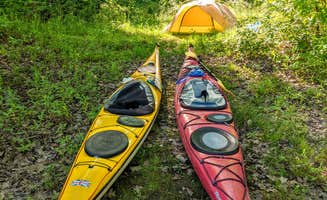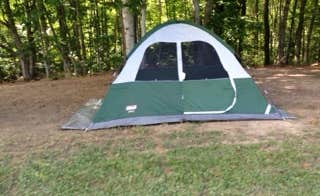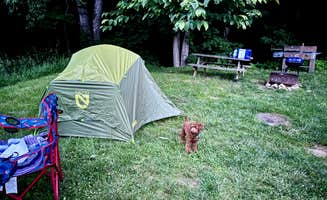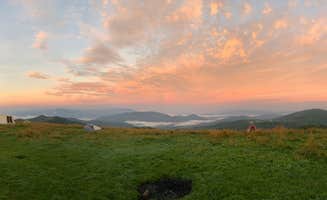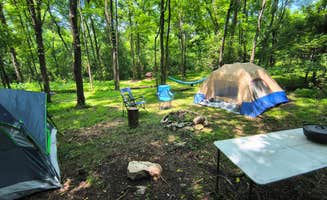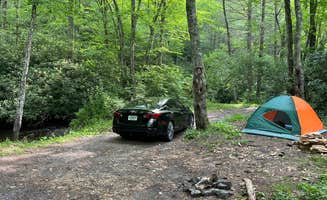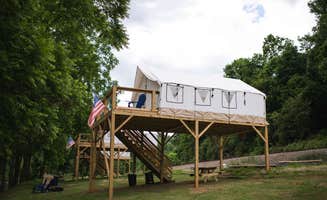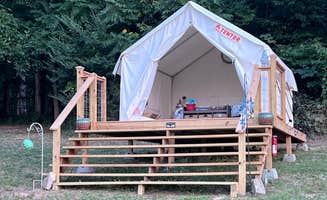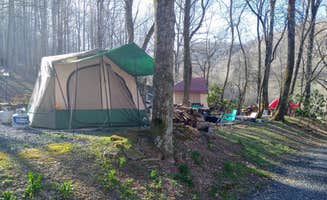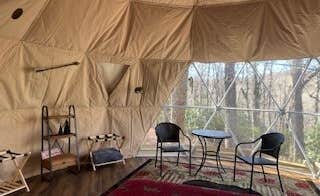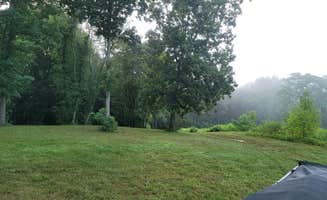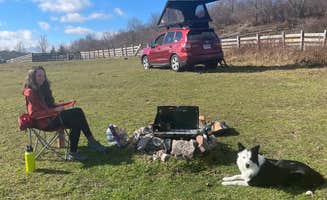Tent camping near Blountville, Tennessee offers access to both the Cherokee National Forest and Watauga Lake, with elevations ranging from 1,200 to 4,000 feet throughout the region. The area experiences mild spring and fall temperatures averaging 50-70°F, while summer temperatures can climb to the mid-80s with afternoon thunderstorms common from June through August. Winter camping is possible at several sites but requires proper cold-weather gear as overnight temperatures regularly drop below freezing.
What to do
Kayaking on Watauga Lake: Access the lake from Little Stony Creek Road Dispersed Area which has "direct water access, and are more private" according to camper reviews. Many sites here have "water access for kayaking/fishing" making it ideal for paddlers seeking no-fee access points.
Hiking the surrounding forests: The area around Blackberry Blossom Farm & Campground provides excellent access to nearby trails. One camper noted the "pristine wilderness of the Appalachian mountains" while still having access to clean facilities. The campground sits on "100+ acres" with opportunities for nature walks without leaving the property.
Mountain biking accessible trails: Several forest service roads near tent sites provide good mountain biking routes. The mountainous terrain offers both technical challenges and scenic reward. Trails range from beginner-friendly flat sections to advanced routes with significant elevation changes.
What campers like
Creek access for natural cooling: Campers appreciate waterside sites during warmer months. At Blue Bear Mountain Camp, visitors enjoy that "the elevation is high so weather is nice for those trying to escape the summer heat." One camper specifically mentioned the "constant light breeze and lack of mosquitoes is a treat."
Private, spaced-out sites: Many tent campers value the feeling of seclusion. At Dark Ridge HideOut, campers enjoy "plenty of room to set up a 3-person tent" with "an opening view to the mountains." The adults-only policy ensures a quieter experience for those seeking tranquility.
Natural mountain surroundings: The higher elevation camping spots provide relief from summer heat. According to a Blue Bear Mountain Camp visitor, "The morning sun lights up the meadow which is the campground centerpiece" creating a memorable experience for those who appreciate natural beauty without crowding.
What you should know
Road noise considerations: Some dispersed camping areas have surprising traffic noise. At Little Stony Creek, campers note "lots of road noise -- you're sitting in a valley bordered by highway on 3 sides, and the echo is serious." Choose sites deeper in forest areas to minimize this issue.
Pack-in requirements: Most dispersed sites require bringing all necessities. Prepare to carry drinking water, proper food storage containers, and waste disposal bags. Cell service is limited in many forest areas, so download offline maps before arrival.
Weather variability: Mountain weather changes rapidly even in summer. At Cliffhanger Ranch Adventure Outpost, visitors report enjoying "a few nice fires at the top of the hill with great views" but recommend packing layers as evening temperatures can drop significantly even after warm days.
Tips for camping with families
Choose established sites for amenities: Families tend to have better experiences at campgrounds with facilities. Blackberry Blossom Farm & Campground provides "a clean bathhouse" and a camp store for last-minute needs, making family trips more comfortable.
Verify water sources: When tent camping with children, reliable water access is crucial. One visitor to Blue Bear noted, "Bathhouse was nice and clean" with "drinking water" available, eliminating the need to haul water for multiple-day stays with kids.
Look for natural play areas: Streams and gentle terrain provide natural entertainment. At 3 Day Nature Effect, families appreciate being "close to the Appalachian Trail" with "kayak or canoe shuttled to and from the Nolichucky River" for an additional fee, creating ready-made activities without extensive planning.
Tips from RVers
Access road challenges: Many tent sites in the region have difficult approach roads. One Blue Bear Mountain camper noted "The state maintained gravel road used to access campground was narrow and would be difficult to get a large camper up there, although there were lots of large ones there." Consider vehicle clearance when selecting sites.
Water management strategies: Most dispersed tent camping areas have no water hookups. At Blue Bear Mountain Camp, campers must "fill your camper tank with water at the office area" as "they do not have water hookups." Plan water usage carefully for longer stays or bring additional storage containers.
Elevation considerations: Higher elevation campgrounds provide cooler temperatures but can challenge RV systems. Prepare for steeper grades on access roads and potentially cooler overnight temperatures requiring additional heating fuel.


